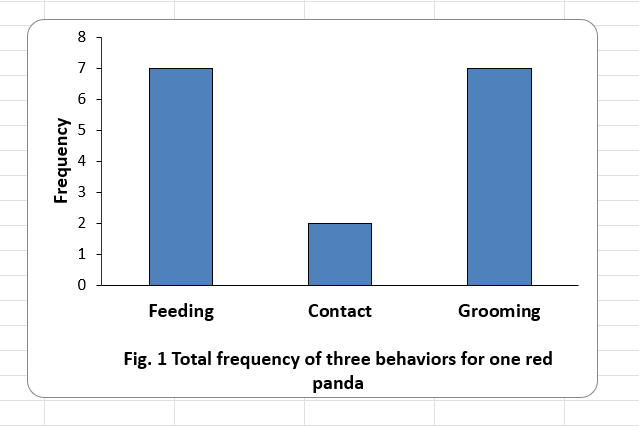Method
As an ethogram, observation of the animal will be used, how it takes care of itself, what it does on a normal day, how it sleeps, eats. In this observation, two approaches will be used that will help to obtain concrete results. Scan sampling refers to the recording of what the animal accomplishes at a regular frequency of 10 minutes. The snooze timer is especially handy for reminding you when it’s time to gather data again. The second method is focused sampling, which entails recording everything the animal performs throughout the observation period, including start and finish times. This is a thorough account of one day in the life of an animal called Red Panda, in Latin it called Ailurus fulgens.
Subject

Procedure
The observation was carried out at the Central Park Zoo, on a day off, namely on Sunday, May 29. It was clear sunny weather outside, warm and light wind. Several ten-minute observations were carried out in the afternoon when the temperature was moderate from +19 to 22 °C. It is important to make multiple observations on the same page using different symbols, such as circles for the first observation session and squares for the second. Compilation and analysis were carried out to complete the study. Two procedures were distinctively recognized and repeated often – feeding and grooming. There was also a procedure of contact but on a rare occasion.
Discussion
Except during breeding season, red pandas are normally territorial and solitary. They have a diurnal and twilight lifestyle, sleeping in trees during the day and marking their territory, and looking for food at night. Red Pandas use chirping sounds and whistles to communicate and bathe like cats. Red pandas may be found in Nepal, India, Bhutan, northern Myanmar, and central China’s highland rainforests (Thapa et al., 2018). They spend most of their life sleeping and sunbathing on trees. These creatures have adapted to their habitat very well, with sharp, semi-opening claws that enable them to hold slick trees (Kappelhof, J & Weerman, 2020). Their flexible ankles enable them to climb trees, allowing them to evade predators swiftly (Thapa et al., 2018). Humans removing wooded habitats for logging and cultivation, as well as illnesses introduced by domesticated animals, pose a threat to these creatures.
References
Kappelhof, J., & Weerman, J. (2020). The development of the Red panda Ailurus fulgens EEP: from a failing captive population to a stable population that provides effective support to in situ conservation. International Zoo Yearbook, 54(1), 102-112.
Thapa, A., Hu, Y., & Wei, F. (2018). The endangered red panda (Ailurus fulgens): Ecology and conservation approach across the entire range. Biological Conservation, 220, 112-121.
